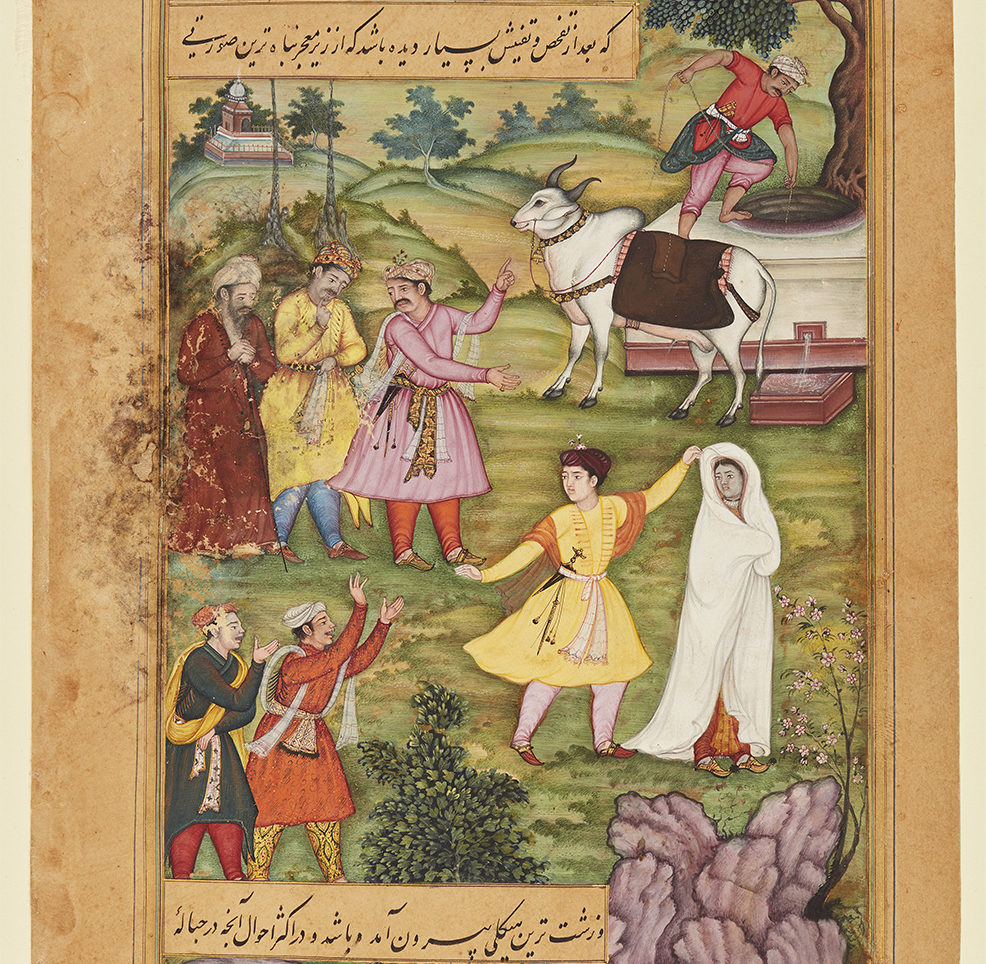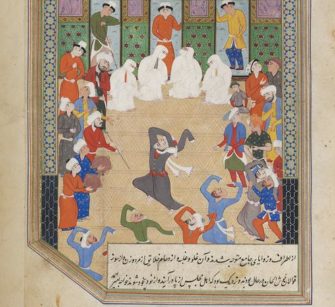
Zahra Ayubi’s Gendered Morality examines how medieval Islamic philosophical ethics, as articulated in the akhlaq (ethics) writings of Ghazali, Tusi, and Davani, are inherently gendered. Ayubi’s work shows how this gendered ethics privileges a particular form of masculinity that is reinforced and sustained by a hierarchical metaphysics and a virtue ethics that both generates, but is also reinforced by, a skewed patronage. This skewed patronage capitalizes on the biological, social, and economic differences and inequalities that exist between men and women as well as between elites and subordinates. Ayubi argues how an unjust system of metaphysics and virtue ethics ultimately undermines the very goals these scholars ostensibly promote in their akhlaq writings: A God-given human happiness and agency for all, and not just some (240). The author concludes the work on an intriguing and open-ended constructivist note, outlining in broad strokes what a “feminist philosophy” of Islam might look like, and asking if the true goals of akhlaq could somehow be recast so as to avoid social/gendered imbalances, patriarchal privilege, and the disparaging of others.
In the field of Islamic Studies, very little has been written on gender as it shapes and constructs philosophical discourse. In fact, many studies on gender and Islam, including my own, leave traditional, medieval works of philosophy out of the equation altogether. One of the reasons for this neglect, I think, has to do with the entrenched patriarchy inherent within these writings, which makes them troubling to feminist thought, and resistant to feminist interpretation. Elite men, after all, composed their arguments to make a case for what the good life is so that other elite men would know how to embody it. When scholars like Ghazali, Tusi, or Davani talk about women at all, they do not present them as agents in their own right, but rather present them as the insufficient instruments men must use, or, the rhetorical or embodied foils men must define themselves against, in their pursuit of the good life. It is hard to get around the fact that these men’s definitions of human flourishing, happiness, and the ability to do what is good are dependent upon the subordination of others. This point, perhaps, is reinforced in contemporary scholarship on Islamic philosophy, where a quick World Cat search reveals that most secondary works on Ghazali and his peers are taken up by male scholars. This fact suggests that even the discourse about the discourse in these examples promotes and secures a more limited purview of expertise and authority that is difficult for women to enter. I admire the fact that the author was willing to tackle this impermeable, unyielding philosophical material head-on—material that has been shunned, dismissed, or ignored by Muslim feminists and female scholars of Islam who focus on women—to deal with questions that are not so easily or comfortably resolved.
In order to expose the social or cultural assumptions at play behind a metaphysics that is inherently patriarchal, Ayubi carefully peels back the discursive layers that characterize the medieval Islamic akhlaq genre. Yet, she warns, it is not enough just to lay bare the biases against women, or to find ways for the akhlaq authors to move into more “women-friendly” territories. If the ideal, elite, ethical man is defined in terms of his ability to suppress others, a move which devalues all who are appropriated for these ends, then the redistribution of power, no matter who will now benefit from it, cannot be the solution. Certainly, attempts to ignore those parts of the akhlaq writings that seem demeaning to women in order to replace them with arguments that may be more palatable to women, or, to weave into the texts a more feminist-friendly system of values, at least offer a much-needed focus on the injustices at-hand. However, these feminist strategies do not go far enough to challenge the underlying metaphysics that by their very structure depend on, and in turn perpetuate, the exploitation of others in service of a few. As Ayubi suggests, determining what is good or just cannot be separated from questions of what constitutes knowledge, who has access to it, and how we define and construct human nature (244). Gendered Morality starts an important conversation about the philosophical underpinnings of a more balanced, fair, and just form of ethics that I know others will be eager to join.

Ayubi’s own unique contribution to this discussion is her deconstruction of the logical premises that support the argument that a good or just society is one that only some people can contribute to, or benefit from. This point also implies that a good society is one that necessarily promotes human degradation and suffering. While she poses no solid conclusions as to how to resolve the problem of the inherent inequality within akhlaq materials, she suggests that insights from contemporary feminist philosophy can add much-needed perspectives to the debate. I’m wondering though, about the extent to which hierarchical and embedded ethical systems can ever be dismantled fully. Is it really possible to resist the temptation to substitute the oppressed for the oppressor? Can we ever come to appreciate the full humanity of women without addressing the underlying social, economic, and cultural systems in place that privilege men? Regardless of these questions, I find Ayubi’s argument that there might be multiple ways in which the dynamic might be assuaged, at least, compelling. For example, the Islamic tradition itself provides resources by which certain philosophical terms might be recast, such as the definition of soul (nafs) or the divinely-created khalifa (authority) humans are called upon to enact in the world. Prophetic language might replace more inherited and embedded forms of classical logic. Islamic notions of care might also be brought to bear on philosophical arguments about human responsibility. Intersectionality is also key in breaking down essentialist portrayals of women and enslaved peoples, as well as of portrayals of elite men like Ghazali whose own integrity is surely compromised by his call for the demeaning treatment of others.
Despite the author’s laudable efforts in unpacking many of these dense, gendered arguments in support of a morality that appears fixed, sanctioned, and universal, the question remains as to whether or not it is feasible, or even desirable, to penetrate a philosophical ethics that leaves no room, or provides any interpretive opening, for recovering the rights of women, lower class men, or slaves. And, it is important to ask whether engagement with these ethical arguments only promotes competition among the marginalized for what bits and scraps of the good life or happiness might be cast aside by those with all the power. Is it possible to salvage any part of a virtue ethics that is built on the premise that although women or enslaved peoples have souls, they lack in their ability to reason, and therefore are lesser humans who must be managed? Why should women, or others, who are demeaned by the discourse, even bother to try and participate in, or deconstruct, a centuries-old system of metaphysics that takes for granted the assumption that human nature itself is varied, unequal, and ripe for exploitation, given that their status is already suspect? And, given that medieval Muslim philosophical definitions of virtue, justice, and living the good life are built upon, and rationalized through such biased, gendered logic, do we believe that they can project the kind of moral authority needed to guide the faithful through the complexities of the world today? But, if we abandon these ethical foundations altogether, and the accumulated and sanctioned wisdom upon which they are based, what can we imagine or construct in their place? Rather than engage in the inequality assumed by a preset debate, many feminists and scholars of Islam who focus on women have given up on these texts altogether, and have looked to a plethora of sources and experiences, and more fragmented forms of logic, through which a more just set of ethics might contribute to the happiness and well-being of not just some, but all. These sources, experiences, and fragments of logic, which draw upon the opinions of female judges and scholars, mystical thought, the lives of everyday Muslim women, as well as feminist scholarship, work to counter male-centered systems of virtue ethics based on deductive logic, essentialism, or objectivity, and look to privilege more emotive forms of aesthetics, or an ethics of care that are more sensitive to political inequalities and humanitarian concerns.

